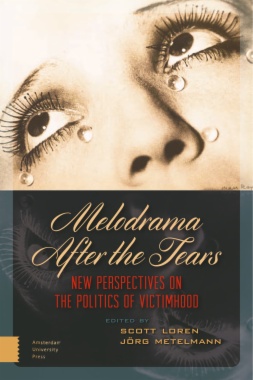Melodrama, it is said, has expanded beyond the borders of genre and fiction to become a pervasive cultural mode. It encompasses distinct signifying practices and interpretive codes for meaning-making that help determine the parameters of identification and subject formation. From the public staging of personal suffering or the psychologization of the self in relation to consumer capitalism, to the emotionalization and sentimentalization of national politics, contributions to this volume address the following question: If melodramatic models of sense-making have become so culturally pervasive and emotionally persuasive, what is the political potential of melodramatic victimhood and where are its political limitations?
This volume represents both a condensation and an expansion in the growing field of melodrama studies. It condenses elements of theory on melodrama by bringing into focus what it recognizes to be the locus for subjective identification within melodramatic narratives: the victim. On the other hand, it provides an expansion by going beyond the common methodology of primarily examining fictive works - be they from the stage, the screen or the written word - for their explicit or latent commentary on and connection to the historical contexts within which they are produced. Inspiration for the volume is rooted in a curiosity about melodramatic forms purported to increasingly characterize aspects of both the private and the social sphere in occidental and western-oriented societies.
- Cover
- Contents
- Introduction
- Scott Loren and Jörg Metelmann
- I. Cultures of Suffering and Cinematic Identities
- Melodrama and Victimhood: Modern, Political and Militant
- When Is Melodrama “Good”? Mega‑Melodrama and Victimhood
- Melodrama and War in Hollywood Genre Cinema
- Race Interactions: Film, Melodrama, and the Ambiguities of Colorism
- The Purloined Letter: Ophuls after Cavell
- II. Modernity and the Melodramatic Self
- The Melodrama of the Self
- Rousseau’s Nightmare
- “Emotional Suffering” as Universal Category?� Victimhood and the Collective Imaginary
- III. Collective Traumas and National Melodramas
- III.1 Legacies of 9/11
- Introduction to W. J. T. Mitchell, “The Abu Ghraib Archive”
- The Abu Ghraib Archive
- The Melodramatic Style of American Politics
- Tears of Testimony: Glenn Beck and the Conservative Moral Occult
- III.2 Holocaust Legacies
- The Cultural Construction of the Holocaust Witness� as a Melodramatic Hero
- Nation and Emotion: The Competition for Victimhood in Europe
- Perspectives
- Interview with Christine Gledhill
- Scott Loren and Jörg Metelmann
- Bibliography
- Index of Film Titles
- Index of Names

